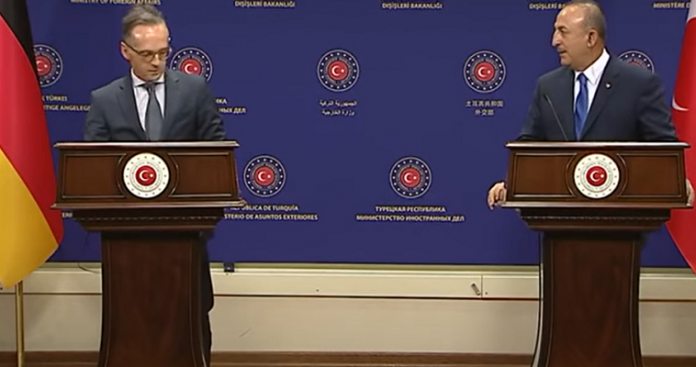Alexandros Tarkas: The Greek-Turkish crisis at a dangerous impasse
27/08/2020
Contacts with foreign mediators present a picture of the failure of most versions of a quick and peaceful solution to the Greek-Turkish crisis or, at best, the exhaustion of all respectable alternatives in Athens.
The modern history of Greek-Turkish relations is characterized by impressive fluctuations of rapid escalation and sudden normalization. Examples are the 24-hour solution to the Greek-Turkish crisis of 1987 and the 7-hour compromise in Imia in January 1996. However, in the present period, there is no reliable evidence that foretells mild developments.
It is characteristic that the German Foreign Minister Haiko Maas, during his previous talks with the Greek Prime Minister and his counterpart Nikos Dendias on July 21, had condemned the Turkish actions in the Cypriot EEZ. In addition, he allegedly added that the EU and Berlin would not tolerate Ankara even announcing such research moves within the Greek continental shelf.
In the evening of the same day, Turkey launched the first Navtex until August 2 (it was revoked on July 27, in view of the start of exploratory contacts) and proceeded with the two newer Navtex, following the legal EEZ delimitation agreement between Greece and Egypt (from 9 to August 27). Two days ago, Haiko Maas and the other members of the German delegation were much more restrained. They did not give hopes for a quick normalization, in their meetings with the Greek leadership.
Earlier, the chancellor’s telephone conversations with Kyriakos Mitsotakis and Tayyip Erdogan on August 13 had given the impression of returning to a dialogue process, but without any practical follow-up. Berlin did not present realistic proposals to remove the impasse, as it admits on the one hand that the Greece-Egypt agreement is completely legal, on the other hand it criticizes its signing and ratification during the specific time period.
The Americans are reactivating
In addition to Haiko Maas’s new visits to Athens and Ankara, German diplomacy no longer appears to want to shoulder all the mediation responsibilities. Berlin was pleased with the support provided conflictingwarring parties (which will have a clear cost in the event of adverse developments).
For its part, the State Department was, of course, in constant but more discreet communication with Athens and Ankara. The negative element is that Washington also considered the choice of the time of announcement of the Greece-Egypt agreement counterproductive. On the positive side, the meeting between Foreign Ministers Nikos Dendias and Mike Pompeo and contacts with US Ambassador to Athens Jeffrey Payatt showed an understanding of the consequences of the ongoing tension and the possible dismantling of NATO’s southern wing.
After all, despite the traditional ties of Kyriakos Mitsotakis with Germany, the government is now realizing (and has officially conveyed this to its American interlocutors after the second Turkish Navtex) that Washington is the only force that can prevent the worst. After all this, the worrying conclusion is that, although the government’s consultations with the so-called foreign factor offered temporary signs of de-escalation, none of them bore fruit.
Turkey is not giving up
The focus of the problem was and remains the fact that the Turkish side has officially informed the Greek side that it will not relinquish the exercise of its “sovereign rights”, even during the bilateral dialogue. The absurd message was sent at the same time as the early removal of the first Navtex. The “sovereign rights” in the Turkish view include the voyages of the Oruc Reis research and auxiliary vessels, as well as their naval escort.
The strange thing is that Ankara did not convey the same message to the foreign mediators, nor did Athens inform them in time about the cold formulation of the Turkish threats. As a result, US and German officials assessed only one side of the issue, citing “Turkish compromise” and “Greek expediency” with Egypt.
The Greek government continues to advocate for the resumption of informal (and therefore safer) exploratory contacts, with an end view to The Hague, on all maritime issues in the Aegean and the Southeastern Mediterranean. However, all other parties (US, Germany and Turkey) now perceive them as broader negotiations.





